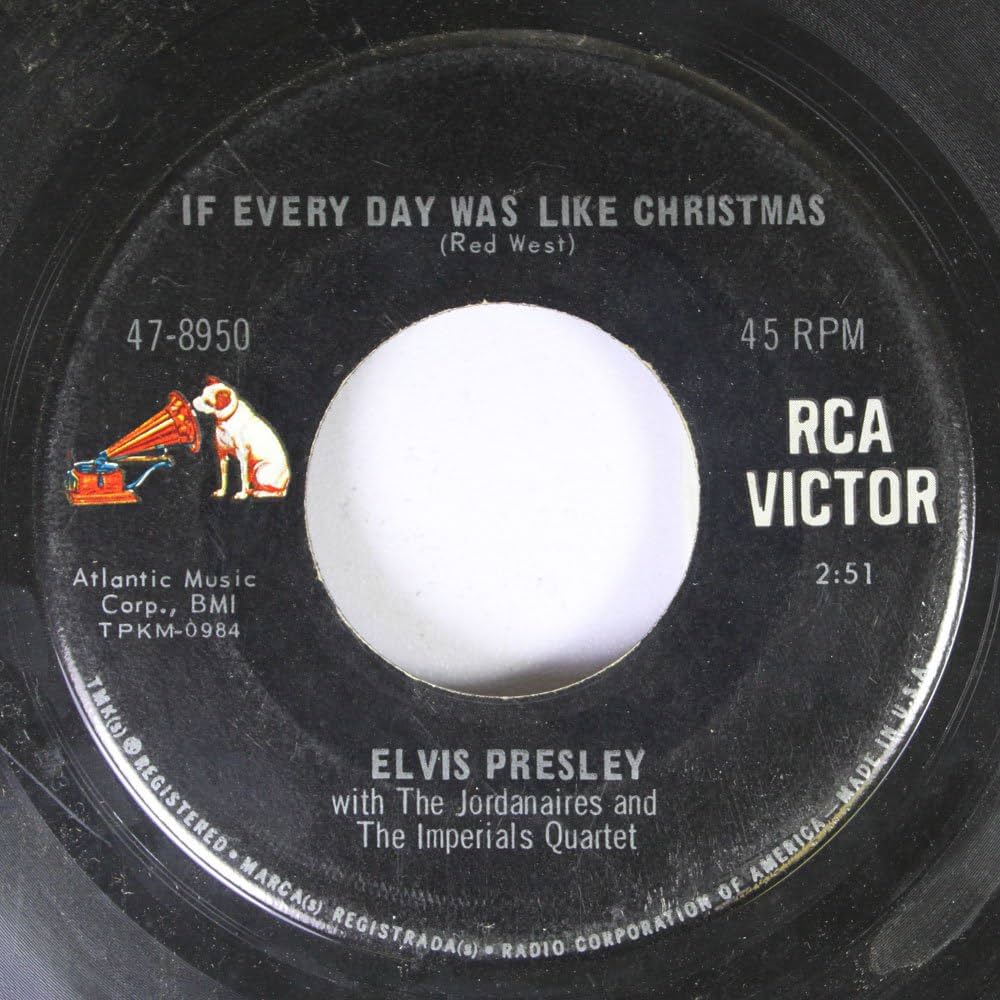I was sitting hard at work in my usual coffee shop the other day when the song “If Every Day Was Like Christmas” came on. It’s that time of year when a lot of places are playing pretty much the same group of Christmas songs, which is pretty much the same group of Christmas songs you would have heard last year, and the year before that, and the year before that.
Not that I’m complaining. But when I heard those sweet lyrics, “Oh, why can’t every day be like Christmas,” my immediate thought was: “But then we’d have to listen to these same lousy Christmas songs all year long!” We’re not talking Adeste Fideles or Joy to the World here. I mean, who would really want to listen to Winter Wonderland and Santa Baby every day for the entire year? So that’s one reason why every day shouldn’t be like Christmas.
But asking whether every day can be like Christmas is like asking whether every day can be like Thanksgiving. If it were, we’d all be half-drunk and fat as cows. And we’d all be bankrupt from buying presents and there’d be broken toys everywhere and none of us would get any work done and, in short, we’d be miserable.
Hence the Church’s wisdom in recognizing the need for liturgical seasons. There are times for celebrating and times for fasting. You don’t go too long before you get a nice “feast day,” and you don’t go too long after that before you’re doing another fast.
The year has a rhythm to it, and that rhythm is associated with the major events of salvation history, especially Christ’s birth and Second Coming at Christmas, and His death, Resurrection, Ascension to the right hand of the Father, and sending of the Holy Spirit from Easter to Pentecost.
Now I can imagine someone’s wonderful old grandmother asking: “Is that man being purposefully obtuse?” To which my reply would be: “If I’m understanding the meaning of the word ‘obtuse,’ then yes.” In my experience, many people’s grandmothers love that song, and not just because it was sung by Elvis. (My mother disliked Elvis but still loved that song.)
So I can well imagine a person who loves that song telling me with no little exasperation that the song isn’t about perpetuating the eating and drinking and partying of Christmas every day of the year (although I think you’d be wrong to suppose that no one thinks that would be a good idea), no, the song is about perpetuating the feeling of Christmas for the rest of the year:
. . .a glow fills my heart
I’m at peace with the world
As the sound of their singing fills the air.Oh why can’t every day be like Christmas
Why can’t that feeling go on endlessly
For if every day could be just like Christmas
What a wonderful world this would be.
I’m not sure that’s much better. I fear it might be a little like asking, “Why can’t I have this warm, glowing feeling currently filling my heart about my spouse and baby every day of the year?” Good luck with that. I’m not saying it wouldn’t be a good thing. But if you expect the feeling to last, you’ll likely be disappointed. And if your “peace with the world” depends on maintaining that feeling, you likely won’t have much peace, nor will the world. Feelings come and go. If you expect that, you’ll be better off.
Okay, so let’s bypass all this business about the song and get right to it. Wouldn’t it be great if we could perpetuate the spirit of Christmas all year long? If by that “spirit,” we mean the spirit of kindness, compassion, generosity, humility, and selfless giving throughout the year, then yes, absolutely. But how could that be done? I mean, we don’t need a national holiday to do it. We have other national holidays that don’t inspire those virtues – or any virtues – mostly more vices. So, what is it about Christmas that makes the difference?
Well, I don’t mean to be controversial, but it might have something to do with the “Christ” part, the Incarnation, the whole business about the God who created the world out of love so loving the world that He became man, a baby in fact, born of a woman an – act of love so great that it culminated in Him sacrificing His life for us. “No greater love has a man than this, that he lay down his life for his friends.”
But that last part, isn’t that the point of Easter, not Christmas? Yes. But again, there’s a rhythm to the year. You don’t want to try to shove too much meaningful memorializing into one day, You could decide to celebrate your birthday and Christmas and wedding anniversary all on one day. It would be efficient. But most people don’t.
So the question becomes, is there some way we could encounter Christ Incarnate as they did on that first Christmas day and the Eleven did in the upper room on Easter morning so we could have that same wonderful spirit they enjoyed? If only there were a way! Like a big, huge Christmas tree in the sky that shines all year, but then we get to eat our own individual Christmas tree cookies each day.
Well, okay, that’s stupid. But like something really meaningful that makes Christmas and Easter present all year and helps make that spirit – the spirit of God’s love – alive in our hearts!
I didn’t grow up Catholic, but I can still imagine some grizzled old priest shaking his head at me and saying: “Hey kid, go to Mass!”
Oh, that’s right. We have the Eucharist: Christ Incarnate, risen from the dead, really present for us to consume in the bread and wine.
Well, okay then. I guess every day could be like Christmas.

















